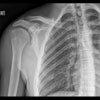
WASHINGTON (Reuters), Nov 2 - Americans spend double what people in other industrialized countries do on healthcare, but have more trouble seeing doctors, are the victims of more errors and go without treatment more often, according to a report released on Thursday.
Patients in the Netherlands struggle the most with paperwork, while British and Canadian citizens wait the longest for elective surgery, the Commonwealth Fund reports in the journal Health Affairs.
The report, published on the Internet at content.healthaffairs.org/cgi/content/abstract/26/6/w717T, provides an annual comparison from the Commonwealth Fund, a private foundation that supports research on health systems.
This year it may be especially important as the 2008 U.S. elections are featuring healthcare reform as one of the most important issues, fund president Karen Davis said.
"The survey shows that in the U.S., we pay the price for having a fragmented healthcare system," Davis told reporters in a telephone briefing.
Harris Interactive researchers surveyed 12,000 adults in the U.S., Britain, Germany, Netherlands, Canada, New Zealand, and Australia. Of these, only the U.S. lacks a universal healthcare system.
The report said Americans spent $6,697 per capita on healthcare in 2005, or 16% of gross domestic product. All the other countries spent less than half of that -- $3,128 in Australia or 9.5% of GDP, $3,326 in Canada or 9.8% of GDP, down to a low of $2,343 in New Zealand or 9% of GDP.
Davis said the Netherlands is included for the first time and is interesting because of its mix of mandated employer-sponsored, private and public insurance.
Standing out but not outstanding
The report found that the U.S. stands out because of its expense and people's dissatisfaction.
"The thing that struck me in this survey is the trouble that Americans have in getting to see their own doctors," Davis said. Americans and Canadians often go to emergency departments for what should be routine care, the survey found.
"As in previous surveys, U.S. adults were most likely to have gone without care because of cost and to have high out-of-pocket costs," the report reads.
"In the U.S., nearly two of five (37%) of all adults and 42% of those with chronic conditions had skipped medications, not seen a doctor when sick, or foregone recommended care in the past year because of costs -- rates well above all other countries," it adds.
"In contrast to the U.S., patients in Canada, the Netherlands, and the U.K. rarely report having to forgo needed medical care because of costs."
Patients in New Zealand and Britain had the least confidence of getting top-notch care.
German and U.S. adults had the quickest access to elective surgery. "In most countries, waits of a year or more were rare; in Canada and the United Kingdom, though, 8% reported waiting that long, and 15% reported waiting six months or more for elective surgery," the report reads.
Having a "medical home" -- such as an easily reached primary care doctor who coordinates other care -- seemed to provide the most satisfaction, said Commonwealth vice president Cathy Schoen, who led the study.
By Maggie Fox
Last Updated: 2007-11-01 15:46:09 -0400 (Reuters Health)
Related Reading
U.S. healthcare expensive, inefficient: report, May 15, 2007
Copyright © 2007 Reuters Limited. All rights reserved. Republication or redistribution of Reuters content, including by framing or similar means, is expressly prohibited without the prior written consent of Reuters. Reuters shall not be liable for any errors or delays in the content, or for any actions taken in reliance thereon. Reuters and the Reuters sphere logo are registered trademarks and trademarks of the Reuters group of companies around the world.

















